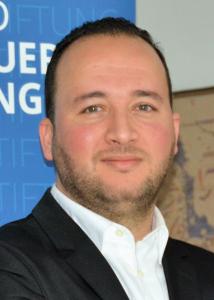Against the backdrop of the recent surge of irregular migration flows from the Maghreb-Sahel region to Europe and the resulting human tragedies, KAS PolDiMed and KAS Sahel jointly hosted, on June 22-23, 2023, a conference on the Migration-Dynamics in the Maghreb-Sahel region. This event is a continuation of the series of thematic conferences in the framework of the project Maghreb-Sahel Dialogue, launched by the two regional programs in 2022.
The conference featured four interactive panels in which leading regional academics, practitioners from UN agencies and international organizations, as well as NGO activists set out to understand the underlying factors contributing to that surge, and explore new paths for fostering the regional governance of migration matters.
The first panel gave a general overview of the recent trends in terms of migration profiles, migration routes, and the adaptation strategies of human smuggling and human trafficking networks. In the second and third panels, the experts thoroughly assessed the national migration policies in both the Maghreb and Sahel countries, and highlighted the legislative flaws and implementation problems that characterize those policies, as well as the limits in the local appropriation of the EU migration policies. The conference was concluded with a policy-oriented panel that put forward a set of recommendations on how to facilitate an orderly, regular and responsible migration; and explored ways to promote multilateral governance between the EU and the Maghreb-Sahel region on migration matters. In this regard, the experts stressed the urgency of shifting away the EU’s policies away from the security prism and pay more attention to the social, economic and human dimensions contributing to the surge in irregular migration from and through the Maghreb-Sahel region.
Themen
Integration und Partizipation durch Quoten?
Einwanderungsgesellschaft im Wandel
„Entscheidend ist, dass die Parteien der Mitte die richtigen Themen und den richtigen Ton setzen”
„Der einzige Weg, Migration als Reizthema zu entschärfen, ist eine funktionierende Politik”
„Viele sind nicht immer kategorisch für eine liberale oder restriktive Politik”



